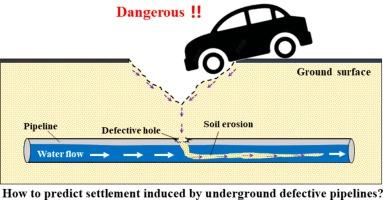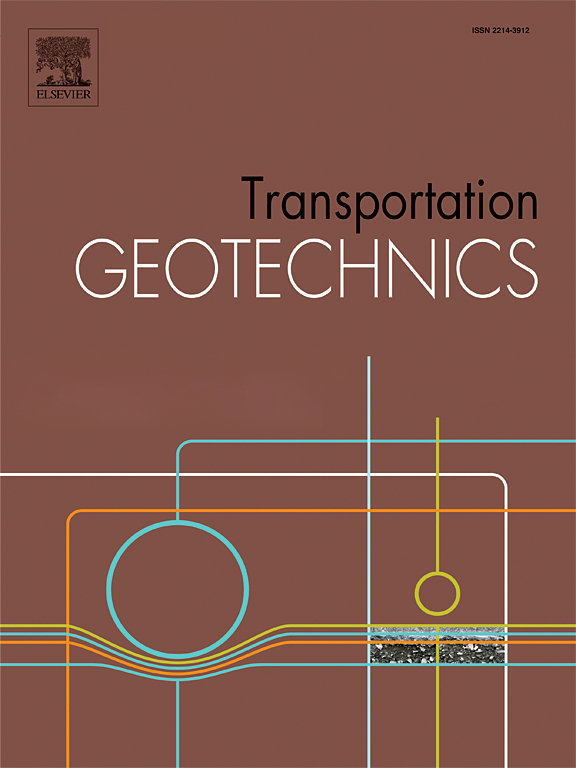Experimental and theoretical investigations of ground settlement around submerged defective pipelines
IF 4.9
2区 工程技术
Q1 ENGINEERING, CIVIL
引用次数: 0
Abstract
Subsurface settlement is often triggered by soil erosion above underground defective pipelines. However, there is currently insufficient research on calculation methods for estimating ground settlement caused by defective pipeline. In this work, a series of laboratory experiments were conducted to investigate the impacts of the soil particle size, hydraulic gradient, thick-span ratio, and full pipe flow velocity on ground settlement around submerged defective pipelines. A sensitivity analysis was performed to further examine these factors. The experimental results revealed that there are three settlement modes, primarily determined by soil skeleton particle size and the thick-span ratio. The full pipe flow velocity and hydraulic gradient significantly affected the settlement range, with the settlement range increasing as either the flow velocity or hydraulic gradient increased. Additionally, a new calculation model based on Manning’s equation was developed to predict soil settlement. The error between the calculation and experiment results was less than 15%, demonstrating the accuracy and effectiveness of the proposed method.

水下缺陷管道周围地面沉降的实验和理论研究
地下沉降通常是由地下缺陷管道上方的土壤侵蚀引发的。然而,目前对估算缺陷管道引起的地面沉降的计算方法研究不足。在这项工作中,我们进行了一系列实验室实验,研究土壤颗粒大小、水力坡度、厚跨比和管道全流速对水下缺陷管道周围地面沉降的影响。为进一步研究这些因素,还进行了敏感性分析。实验结果表明,有三种沉降模式,主要由土壤骨架颗粒大小和厚跨比决定。全管道流速和水力坡度对沉降范围有显著影响,流速或水力坡度越大,沉降范围越大。此外,还根据曼宁方程建立了一个新的计算模型来预测土壤沉降。计算结果与实验结果之间的误差小于 15%,证明了所提方法的准确性和有效性。
本文章由计算机程序翻译,如有差异,请以英文原文为准。
求助全文
约1分钟内获得全文
求助全文
来源期刊

Transportation Geotechnics
Social Sciences-Transportation
CiteScore
8.10
自引率
11.30%
发文量
194
审稿时长
51 days
期刊介绍:
Transportation Geotechnics is a journal dedicated to publishing high-quality, theoretical, and applied papers that cover all facets of geotechnics for transportation infrastructure such as roads, highways, railways, underground railways, airfields, and waterways. The journal places a special emphasis on case studies that present original work relevant to the sustainable construction of transportation infrastructure. The scope of topics it addresses includes the geotechnical properties of geomaterials for sustainable and rational design and construction, the behavior of compacted and stabilized geomaterials, the use of geosynthetics and reinforcement in constructed layers and interlayers, ground improvement and slope stability for transportation infrastructures, compaction technology and management, maintenance technology, the impact of climate, embankments for highways and high-speed trains, transition zones, dredging, underwater geotechnics for infrastructure purposes, and the modeling of multi-layered structures and supporting ground under dynamic and repeated loads.
 求助内容:
求助内容: 应助结果提醒方式:
应助结果提醒方式:


